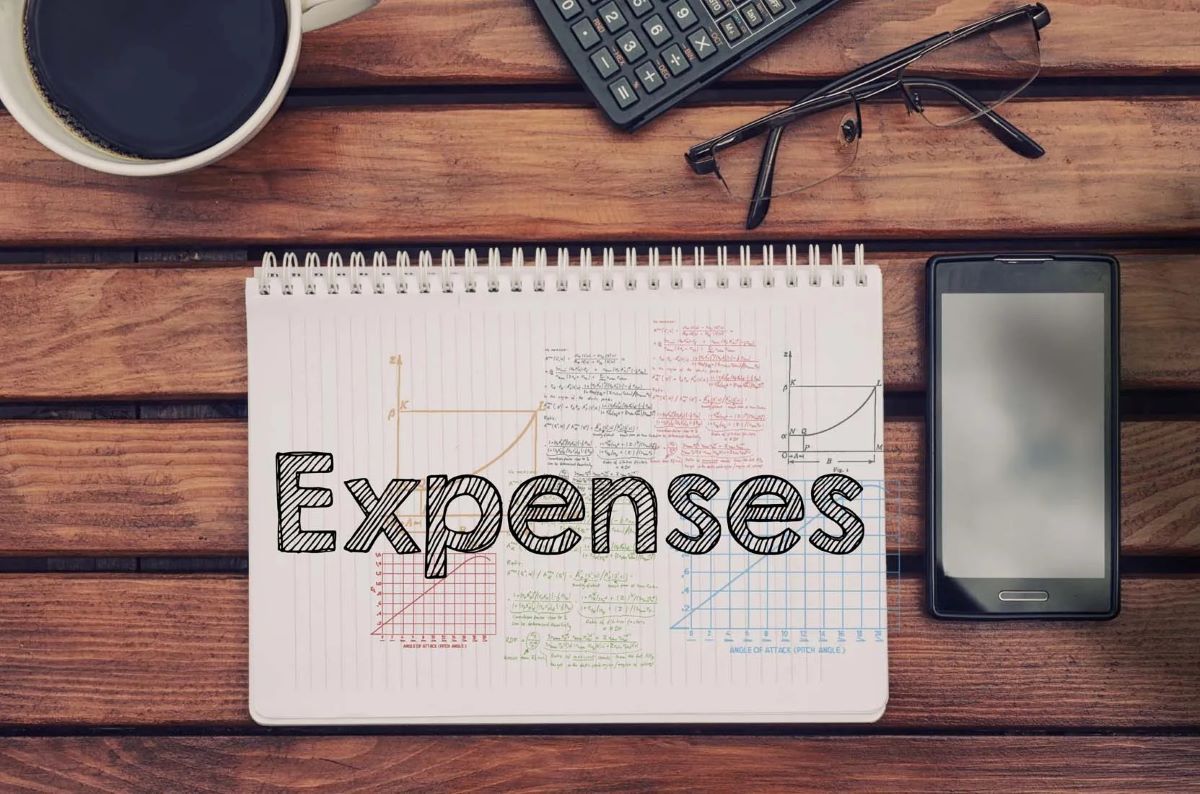

Finance
What Does Counter Offer Mean For Personal Loan
Modified: February 21, 2024
Learn what counter offer means for personal loans and how it impacts your finances. Empower yourself with knowledge to make informed financial decisions.
(Many of the links in this article redirect to a specific reviewed product. Your purchase of these products through affiliate links helps to generate commission for LiveWell, at no extra cost. Learn more)
Table of Contents
- Introduction
- Definition of Counter Offer
- Counter Offer in the Context of Personal Loans
- Importance of Counter Offer for Personal Loan Borrowers
- Benefits and Risks of Accepting a Counter Offer
- Factors to Consider Before Accepting a Counter Offer
- How to Negotiate a Counter Offer for a Personal Loan
- Common Mistakes to Avoid when Making or Responding to a Counter Offer
- Conclusion
Introduction
In the world of personal loans, potential borrowers often have the opportunity to negotiate the terms and conditions of their loan. One common aspect of this negotiation process is the counter offer. A counter offer occurs when a lender responds to a borrower’s initial loan offer with a modified proposal. It is a crucial step in the loan application process as it allows borrowers to have some level of control and flexibility over the terms of their loan.
When it comes to personal loans, understanding the concept of a counter offer is essential. It can significantly impact the borrower’s ability to secure a loan that meets their specific needs and financial situation. In this article, we will explore the meaning of a counter offer in the context of personal loans, discuss its importance for borrowers, and examine the benefits and risks associated with accepting such an offer.
Additionally, we will provide valuable insights into the factors borrowers should consider before accepting a counter offer and offer guidance on how to negotiate effectively. By the end of this article, you will have a comprehensive understanding of what a counter offer means for personal loans and be equipped with the knowledge to navigate this process successfully.
Definition of Counter Offer
A counter offer is a response given by one party to a negotiation or proposal that modifies the original terms presented by the other party. In the context of personal loans, a counter offer occurs when a lender receives a borrower’s loan application and presents an altered loan offer in response to the borrower’s initial request.
When a borrower submits a loan application, they typically include details such as the desired loan amount, repayment period, and interest rate they are willing to accept. However, lenders may review the borrower’s application and find that some aspects need to be adjusted to align with their lending guidelines and risk assessment.
The counter offer from the lender may include changes to the loan terms, such as a higher or lower interest rate, a different repayment period, or adjustments to fees and charges. The purpose of the counter offer is to find a middle ground that satisfies both the borrower and the lender, creating a loan agreement that is mutually beneficial.
It’s important to note that a counter offer is essentially a negotiation tactic. It allows both parties involved in the loan agreement to discuss and potentially modify the loan terms to reach a more favorable outcome. The borrower has the choice to accept the counter offer, decline it, or make a counter counter offer in response.
Understanding the concept of a counter offer is essential for personal loan borrowers as it gives them an opportunity to tailor their loan to their needs and financial capabilities. It can be a powerful tool for securing a loan that provides the desired terms and conditions, making it an integral part of the loan application process.
Counter Offer in the Context of Personal Loans
When it comes to personal loans, a counter offer plays a crucial role in the negotiation process between the borrower and the lender. It allows the lender to present adjusted terms and conditions that better align with their risk assessment and lending guidelines, while also giving the borrower an opportunity to secure a loan agreement that meets their specific needs.
In the context of personal loans, a counter offer can involve various aspects, such as the loan amount, interest rate, repayment period, and fees. Let’s explore how these elements come into play during the counter offer process:
- Loan Amount: The initial loan request from the borrower may not align with the lender’s evaluation of the borrower’s creditworthiness and financial situation. In such cases, the lender may counter with a modified loan amount that they consider appropriate based on their assessment.
- Interest Rate: The interest rate offered to the borrower is a crucial factor in determining the affordability and cost of the loan. If the lender determines that the borrower poses a higher risk, they may counter with a higher interest rate to mitigate that risk. On the other hand, if the borrower has a strong financial profile, they may receive a lower counter offer with a more favorable interest rate.
- Repayment Period: The repayment period refers to the duration over which the borrower will repay the loan. The initial loan request may have a repayment period that doesn’t align with the lender’s preferences or the borrower’s financial circumstances. As a result, the lender may propose a counter offer with an adjusted repayment period that better suits both parties.
- Fees and Charges: Personal loans often come with various fees and charges, such as origination fees or prepayment penalties. The lender’s counter offer may include adjustments to these fees to ensure that the loan agreement is fair and reasonable for both parties.
Ultimately, the counter offer process in personal loans allows both the borrower and the lender to find a middle ground that satisfies their respective goals and requirements. It provides borrowers with the opportunity to negotiate loan terms that better fit their financial situation, while lenders can ensure they are extending credit in a responsible and manageable manner.
Understanding how a counter offer fits into the context of personal loans is essential for borrowers. It empowers them to navigate the negotiation process with confidence and secure a loan agreement that aligns with their financial needs and capabilities.
Importance of Counter Offer for Personal Loan Borrowers
The counter offer process holds significant importance for personal loan borrowers. It provides them with a valuable opportunity to negotiate and secure loan terms that are favorable to their specific financial needs and circumstances. Let’s explore why the counter offer is essential for borrowers:
1. Tailored Loan Terms: The counter offer allows borrowers to customize the loan terms to better suit their financial situation. By engaging in the negotiation process, borrowers can request adjustments to the loan amount, interest rate, repayment period, and fees to find a loan agreement that aligns with their financial goals.
2. Cost Savings: Through the counter offer, borrowers have the chance to secure more competitive interest rates and favorable loan terms. This can result in substantial cost savings over the life of the loan. By negotiating for a lower interest rate or reduced fees, borrowers can potentially save a significant amount of money.
3. Increased Borrowing Power: For borrowers who might initially receive an offer with unfavorable terms or a loan amount that does not meet their needs, the counter offer process gives them the opportunity to request adjustments. By negotiating for a higher loan amount or more favorable terms, borrowers can increase their borrowing power and obtain the financing necessary to meet their goals.
4. Flexibility in Repayment: The counter offer allows borrowers to negotiate for a repayment period that better suits their financial capabilities. Whether borrowers need a longer repayment period to lower their monthly payment or a shorter one to pay off the loan faster, the negotiation process allows for this flexibility.
5. Improved Financial Planning: By engaging in the counter offer process, borrowers can gain a better understanding of their financial options. Discussing and negotiating loan terms with the lender can provide valuable insights into interest rates, fees, and repayment options, enabling borrowers to make more informed financial decisions.
6. Empowerment and Control: The counter offer process gives borrowers a sense of empowerment and control over their loan agreement. It allows them to actively participate in the negotiation process, ensuring that they have a say in the final loan terms and conditions.
Overall, the counter offer process for personal loans is of utmost importance to borrowers. It empowers them to customize loan terms, save costs, increase borrowing power, and gain control over their loan agreement. By actively engaging in the negotiation process, borrowers can secure a loan that meets their unique financial needs and supports their long-term financial well-being.
Benefits and Risks of Accepting a Counter Offer
When considering a counter offer for a personal loan, borrowers must carefully evaluate both the benefits and risks involved. Accepting a counter offer can have several advantages, but it also comes with potential drawbacks. Let’s explore the benefits and risks of accepting a counter offer:
Benefits:
- Favorable Loan Terms: Accepting a counter offer allows borrowers to secure loan terms that are more favorable to their financial situation. This could include a lower interest rate, a longer repayment period, or reduced fees, ultimately resulting in improved affordability and cost savings over the life of the loan.
- Customized Loan Solution: By accepting a counter offer, borrowers have the opportunity to tailor the loan terms to their specific needs. This customization can provide flexibility in repayment options, loan amount, and other terms, allowing borrowers to obtain the financing that best aligns with their financial goals.
- Higher Chance of Loan Approval: If the initial loan offer was not approved by the lender, accepting a counter offer may increase the chances of loan approval. This is because the counter offer addresses any concerns or discrepancies identified by the lender, making the loan application more likely to meet their requirements.
Risks:
- Higher Cost: Accepting a counter offer with a higher interest rate or additional fees may result in a higher overall cost of the loan. Borrowers should carefully consider the long-term financial implications and determine if the benefits outweigh the increased expenses.
- Extended Repayment Period: While a longer repayment period may reduce monthly payments, borrowers need to assess if they are comfortable with the extended duration of debt. This is especially important for loans with high-interest rates, as longer repayment periods can result in a higher total interest paid over time.
- Potential Impact on Credit: When accepting a counter offer, the lender may perform a hard credit inquiry, which can temporarily lower the borrower’s credit score. It is important to understand the potential impact and weigh it against the benefits of the loan offer.
Before accepting a counter offer, borrowers should thoroughly review and compare the terms and conditions offered. It is advisable to carefully calculate the total cost of the loan, assess the impact on monthly budgeting, and consider the loan’s long-term implications on their financial journey.
Furthermore, borrowers should always read and understand the loan agreement, including any fine print or hidden fees, to ensure complete transparency and avoid any unexpected surprises in the future.
Ultimately, the decision to accept a counter offer should be made after careful consideration of the benefits and risks involved. By weighing these factors, borrowers can make an informed choice that aligns with their financial goals and circumstances.
Factors to Consider Before Accepting a Counter Offer
When presented with a counter offer for a personal loan, borrowers should carefully evaluate several key factors before making a decision. Taking the time to consider these factors can help borrowers make an informed choice that aligns with their financial goals and circumstances. Here are some important factors to consider before accepting a counter offer:
- Interest Rate: Evaluate the interest rate offered in the counter offer and compare it with other loan options. Consider whether the rate is competitive and if it fits within your budget. A higher interest rate can significantly impact the total cost of the loan over time.
- Repayment Terms: Examine the repayment terms, including the duration of the loan and the monthly payment amount. Determine if the repayment plan is manageable for your financial situation. Consider the potential impact of an extended repayment period on overall interest costs.
- Total Loan Cost: Calculate the total cost of the loan, taking into account the interest rate, fees, and any other charges associated with the counter offer. Compare this with the total cost of other loan options to ensure you are getting the most affordable financing.
- Loan Amount: Assess whether the loan amount offered in the counter offer meets your financial needs. Consider whether it will cover your intended expenses and if it is sufficient for your requirements.
- Financial Stability: Evaluate your current financial situation and stability. Consider whether you will be able to meet the repayment obligations without causing financial strain. Take into account any potential changes in income or financial circumstances that may affect your ability to repay the loan.
- Fees and Charges: Review the fees and charges associated with the counter offer, including origination fees, prepayment penalties, and late payment fees. Ensure you understand the terms and consider if the fees outweigh the benefits of the loan offer.
- Financial Institution Reputation: Research the reputation and credibility of the financial institution offering the counter offer. Consider factors such as customer reviews, the institution’s track record, and its customer service. It’s important to work with a reliable and trustworthy lender.
By carefully evaluating these factors, borrowers can make an informed decision about whether to accept the counter offer. It is essential to consider your financial goals, affordability, and long-term financial well-being when making this decision.
In addition to these factors, borrowers should consider seeking guidance from a financial advisor or consult with professionals in the field to gain further insight and ensure that their decision aligns with their unique financial situation.
Remember, taking the time to assess these factors and make a well-informed decision will help you choose the best loan offer that meets your financial needs and supports your goals.
How to Negotiate a Counter Offer for a Personal Loan
Negotiating a counter offer for a personal loan is a crucial step in the loan application process. It allows borrowers to advocate for loan terms that better align with their financial goals and circumstances. Here are some effective strategies to help you negotiate a counter offer successfully:
1. Research and Compare: Before entering negotiations, research and compare loan offers from different lenders. This will give you a better understanding of the prevailing interest rates, fees, and loan terms. Armed with this knowledge, you can negotiate from a position of strength.
2. Highlight Your Qualifications: Emphasize your strong credit history, stable employment, and reliable income to demonstrate your creditworthiness. By showcasing your qualifications and financial stability, you may be able to negotiate for more favorable terms.
3. Clearly Communicate Your Needs: Clearly communicate your financial needs and objectives to the lender. Be specific about the loan amount, repayment period, and interest rate that would work best for you. This will help the lender understand your requirements and negotiate accordingly.
4. Be Willing to Compromise: Negotiation involves give and take. Be open to compromises that still meet your financial goals. If a lender offers a counter offer that is not exactly what you were hoping for, consider if it still aligns with your needs and explore options for potential negotiation.
5. Provide Documentation: Support your negotiation with relevant documentation. This can include pay stubs, bank statements, and any other supporting documents that showcase your financial stability and ability to repay the loan.
6. Maintain a Professional and Respectful Attitude: Approach negotiations with a professional and respectful attitude. Be confident but polite. Remember, building a positive relationship with the lender can make the negotiation process smoother.
7. Consider a Co-signer: If you’re struggling to secure favorable terms on your own, consider having a creditworthy co-signer. A co-signer with a strong credit history can increase your chances of receiving a better counter offer.
8. Be Prepared to Walk Away: If the counter offer does not meet your financial needs or if the terms are not favorable, be prepared to walk away. It’s essential to prioritize your financial well-being and not settle for a loan agreement that may not align with your goals.
9. Seek Professional Advice: If you’re unsure about negotiating a counter offer or need guidance, consider working with a financial advisor or loan officer. They can provide expert advice and help you navigate the negotiation process.
10. Read and Understand the Terms: Once a counter offer is presented, carefully read and understand the terms and conditions before accepting. Pay attention to any potential hidden fees, prepayment penalties, or other clauses that may impact the loan’s cost and your flexibility to repay.
Remember, successful negotiation requires preparation, clear communication, and a willingness to find common ground. By employing these strategies, you can improve your chances of securing a personal loan with terms that are favorable to your financial situation.
Common Mistakes to Avoid when Making or Responding to a Counter Offer
When making or responding to a counter offer for a personal loan, it’s important to approach the negotiation process with care and caution. By avoiding common mistakes, borrowers can navigate the counter offer process more effectively. Here are some mistakes to avoid:
1. Failing to Prepare: One of the biggest mistakes borrowers can make is entering into a counter offer negotiation without proper preparation. It’s essential to research and gather relevant information about current market rates, loan terms, and lender requirements. This will equip you with the knowledge needed to negotiate effectively.
2. Neglecting to Review the Offer Thoroughly: Whether you’re making or responding to a counter offer, carefully review the terms of the offer. Overlooking important details or rushing through the process can lead to misunderstandings or unintended consequences. Take the time to read and understand all aspects of the counter offer before proceeding.
3. Focusing Solely on Interest Rate: While the interest rate is an important factor in loan negotiations, it’s essential to consider the overall loan package. Don’t make the mistake of solely focusing on securing the lowest interest rate. Pay attention to other loan terms, such as fees, repayment period, and prepayment penalties, as they can significantly impact the total cost of the loan.
4. Making Unrealistic Demands: It’s important to approach the negotiation process with a sense of realism. Making demands that are unrealistic or outside the realm of what the lender can offer may hinder the counter offer process. Strive for a balance by considering both your needs and the lender’s limitations.
5. Not Considering the Long-Term Implications: When negotiating a counter offer, it’s crucial to consider the long-term implications of the loan terms. For example, opting for a longer repayment period to secure lower monthly payments may result in higher total interest paid over time. Don’t solely focus on short-term benefits without assessing the long-term consequences.
6. Neglecting to Negotiate Other Loan Components: While the interest rate often takes center stage, borrowers should also negotiate other loan components. This includes fees, repayment options, or adding specific clauses that may benefit your financial circumstances. Take a comprehensive approach to negotiation and consider all aspects of the loan agreement.
7. Not Seeking Multiple Offers: Don’t limit yourself to a single lender or counter offer. Seeking multiple offers allows you to compare and choose the most favorable terms. Failing to explore different options may result in missed opportunities for better loan terms.
8. Rushing the Process: Negotiating a counter offer takes time and careful consideration. Avoid the mistake of rushing through the process to secure a loan quickly. Take the necessary time to review the terms, understand the implications, and make informed decisions.
9. Forgetting to Keep Emotions in Check: Emotions can sometimes impact decision-making during the negotiation process. It’s important to remain calm, composed, and professional throughout the discussions. Managing emotions and approaching negotiations in a level-headed manner can lead to more successful outcomes.
10. Not Seeking Professional Advice: If you’re unsure about the negotiation process or the terms being offered, consider seeking advice from a financial advisor or loan officer. Their expertise can help you make informed decisions and avoid common pitfalls.
By avoiding these common mistakes, borrowers can navigate the counter offer process with confidence and increase their chances of securing a loan agreement that aligns with their financial needs and goals.
Conclusion
The counter offer process is a vital component of obtaining a personal loan that meets your financial needs and goals. It allows borrowers to negotiate and customize loan terms that align with their specific circumstances. By carefully considering the counter offer, borrowers can secure more favorable loan terms, increase their borrowing power, and save costs over the life of the loan.
In this article, we explored the meaning of a counter offer in the context of personal loans and discussed its significance for borrowers. We highlighted the benefits and risks of accepting a counter offer, emphasizing the importance of evaluating the terms and considering the long-term implications. Factors such as interest rate, repayment terms, total loan cost, financial stability, and lender reputation were identified as crucial factors to consider before accepting a counter offer.
We also provided strategies for negotiating a counter offer effectively, including conducting research, clearly communicating your needs, and being willing to compromise. Additionally, we discussed common mistakes to avoid when making or responding to a counter offer, such as failing to prepare, solely focusing on interest rates, and neglecting to review the offer thoroughly.
Ultimately, the counter offer process empowers borrowers to take an active role in the loan application process and secure loan terms that align with their financial goals. By understanding the intricacies of the counter offer process, borrowers can navigate negotiations with confidence, make informed decisions, and achieve more favorable loan agreements.
Remember, when entering into the counter offer process, it’s essential to stay realistic, consider the long-term implications, and be prepared to negotiate. Seek professional advice if needed and take the necessary time to review and understand all terms and conditions before accepting a counter offer.
By leveraging the counter offer process effectively, borrowers can secure personal loans that meet their financial needs, empower their financial journey, and pave the way for a more secure and prosperous future.














